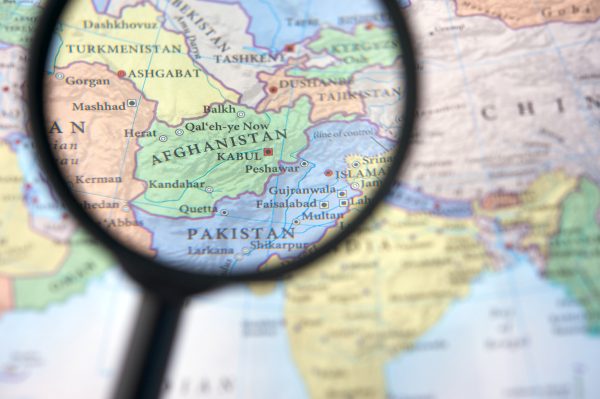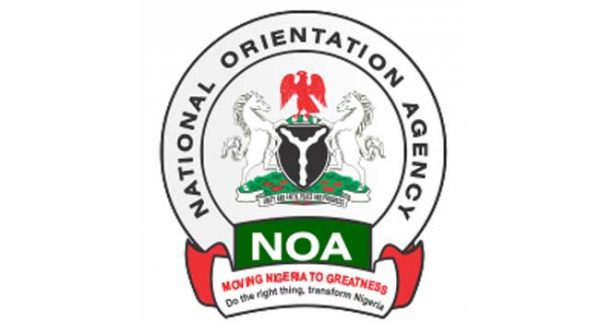By Edris Tajik
Copyright thediplomat

On July 3, Russia became the first country to formally recognize the Taliban government, a move that the Taliban’s foreign minister, Amir Khan Muttaqi, quickly praised as a “courageous step” and urged others to follow. Many assume that this recognition, along with any that may follow, will strengthen the Taliban’s grip on power. In reality, the effect may be the opposite. Rather than cementing the Taliban’s rule, recognition could speed the divisions already pulling it apart. The most immediate source of tension is resources. Since August 2021, Afghanistan’s economy has been in freefall. Foreign aid that once covered roughly 75 percent of the previous government’s budget stopped, and about $7 billion in central bank reserves were frozen under sanctions on the Taliban. While international support may never return to pre-Taliban levels, acceptance by the international community, particularly if sanctions are removed, would open paths to new resources and income as it would allow access to formal banking channels, larger customs receipts, more security contracts for trade corridors, and new mineral concessions. These are also the kinds of opportunities that can quickly become points of contention. In the absence of a unified regime, revenue streams are divisible and contested. And with regard to the Taliban, even after four years, the group still rules by stitching factions together, from tribal leaders to brokers and clerics, with rival Pashtun groups at their core as the group is split between the Pashtun Kandahari Taliban around Hibatullah Akhundzada, the current leader, and the Pashtun Haqqani network led by Sirajuddin Haqqani, the interior minister. Divisions also run along ethnic lines. Even though the Taliban is dominated by Pashtuns, there are also a few Tajik, Uzbek and Hazara commanders in the ranks. In the past couple of years, there have been multiple cases of dissent following differences over the distribution of resources and the Pashtun-dominated leadership structure. A sudden increase in resources and revenue could deepen rivalries over who controls more wealth and influence. This is not hypothetical. Over the past year, reports have detailed competition over government posts and revenues, and there are cases where the struggle over resources has turned violent. In February 2025, Taliban fighters executed several local leaders after they protested a Taliban-run gold site in Badakhshan. In neighboring Takhar, residents took to the streets against mining contracts awarded to outsiders, often backed by local Taliban commanders. In 2023, growing concerns over patronage pushed Akhundzada to issue an anti-nepotism decree, ordering officials to dismiss relatives appointed to government jobs. However, despite the decree, recently the United Nations reported that appointments and offices continued to go mostly to Pashtun men loyal to him, meaning that even he fears resentment and resistance within the bureaucracy, a fear that, with more opportunities and revenues, is only likely to grow. It should not be surprising that if the mere crumbs of a broke state triggered such behavior, the possible increase in resources as a result of recognition could unleash far worse. The corruption stemming from competition over who controls what, once condemned by the Taliban in the previous regime and rightly seen as one of the main reasons for the Islamic Republic’s collapse, could now choke the Taliban from within. External pressure adds another layer of strain. Recognition comes with responsibility, and for the Taliban, that responsibility falls into two areas. The first is domestic policy: how they treat their own people, whether girls can go to school, and whether the government is inclusive. Many countries, especially in the region, are ready to look past these issues or keep them low on the list. The second is external behavior: how the Taliban manage borders, honor agreements, and prevent terrorism from spilling over. These concerns won’t be so easily brushed aside, and the countries that recognize the Taliban will expect accountability. On both fronts, the Taliban fall short, as the group clings to rigid ethno-religious lines and suffers from weak capacity and a muddled chain of command. The past four years have made this clear. On domestic issues, the Taliban remain divided on how to respond to outside pressure. A few months after their takeover, there were reports suggesting some factions were open to leveraging girls’ education as a bridge to the international community, but the group instead banned schooling for girls beyond grade six. In early 2025, Taliban Deputy Foreign Minister Mohammad Abbas Stanikzai even fled the country after backing girls’ education. Inclusivity is another unmet demand, raised both at home and abroad. Faced with criticism last year, Akhundzada declared in his Eid sermon that the Taliban “will never compromise on our principles or Islam,” while Sirajuddin Haqqani urged humility and warned against alienating the public. Whether Haqqani’s words were genuine or political posturing, such statements show how external pressure, especially through recognition, risks deepening the Taliban’s internal divides. On foreign relations, the Taliban’s record is no better. Since taking power, they have occasionally clashed with neighbors. In the first three months of 2025 alone, there were six skirmishes with Pakistani forces. Armed standoffs with Iran over water rights have also turned violent despite an existing agreement, and in August, Taliban members engaged in a deadly clash with Tajikistan’s border forces. The country continues to be a safe hub for terrorist groups and other militants, including al-Qaida and the Islamic State-Khorasan Province (ISKP). These failures indicate both the Taliban’s lack of unity and the absence of a central command. Many factions and commanders see support for groups like al-Qaida and TTP not only as a survival strategy but also as a religious duty. It is the same mindset that led them to refuse to hand over Osama bin Laden in 2001. Recognition, and the pressure that comes with it, would likely make these fractures even worse because the leadership would be forced to choose between appeasing foreign governments or siding with hardline factions. Either choice risks provoking rebellion within their own ranks. This leads to the deepest problem: identity. Recognition also forces the Taliban to confront who they are. The Taliban rose to power on a narrative of jihad, resistance, and austere Islamic rule. To many of their fighters, the idea of bowing to the demands of international powers, many of them non-Muslim states that the Taliban once derided as invaders or infidels, is not acceptable. Even the group’s leader and his close circle of clerics in Kandahar have long had disputes over how to engage with the outside world. Some of them view “global integration” as a threat to their ideological struggle as they view legitimacy as coming from divine sanction and military victory, not foreign approval. But what really makes this crisis dangerous is that it can be easily exploited by other extremist groups. ISKP already brands the Taliban “apostates” for any sign of pragmatism, citing their willingness to negotiate with the United States and their failure to enforce a perfectly strict version of sharia as proof of moral weakness. Full diplomatic recognition could hand ISKP and others a propaganda victory. They could portray the Taliban as puppets of foreign powers, tarnished by diplomacy and no longer true holy warriors, and exploit the identity crisis within the Taliban ranks, which could easily widen the existing rifts within the group. Recognition, then, carries real costs. As it may bring resources, it can also fuel rivalries over who controls them, and as much as it might offer legitimacy, it also splits the group over how to deal with foreign demands. Above all, it risks creating an identity crisis among Taliban members, which can be harnessed by other extremist groups in the country. For those states dealing with Afghanistan, this is a warning. Whether recognition is seen as a path to stability or a way to gain leverage in geopolitical competition, as many argue was the case for Russia, it also carries the risk of doing the opposite, and instead of stabilizing the country, it could widen the Taliban’s internal fractures and fuel the very instability it was meant to prevent.



